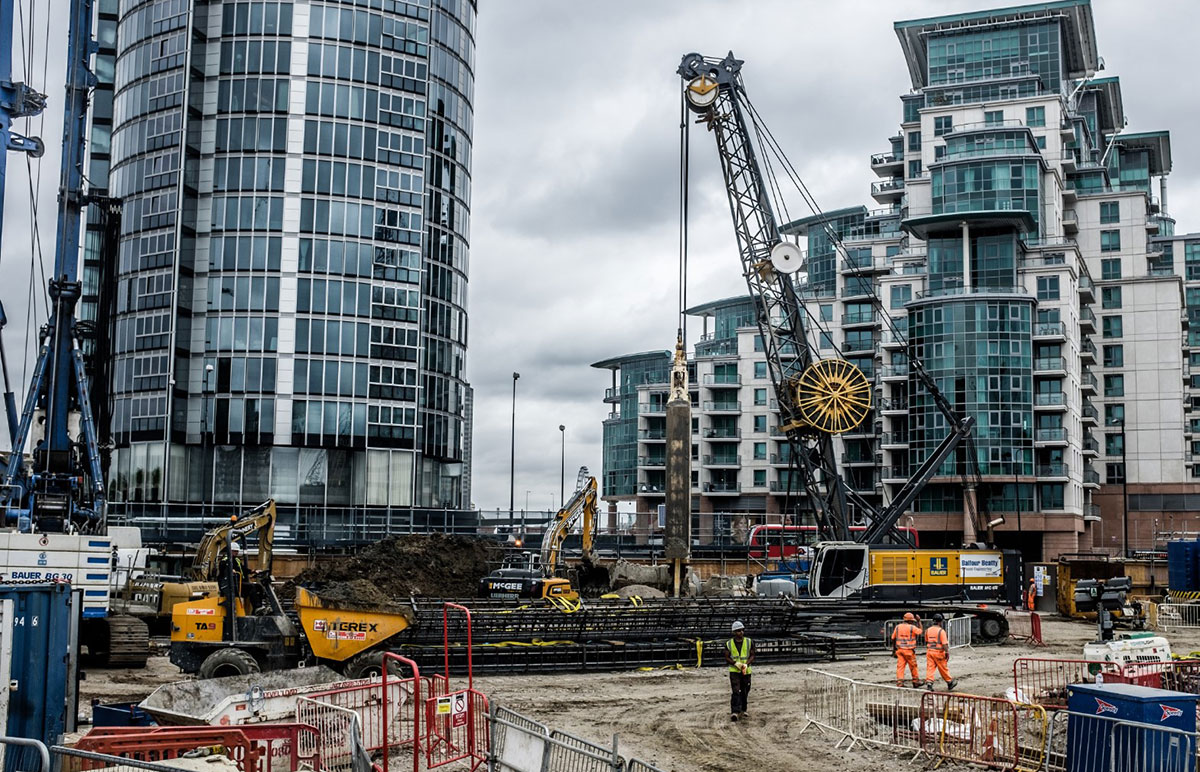Getting My Geotheta To Work
Getting My Geotheta To Work
Blog Article
Not known Incorrect Statements About Geotheta
Table of ContentsIndicators on Geotheta You Should KnowSome Ideas on Geotheta You Need To KnowHow Geotheta can Save You Time, Stress, and Money.Geotheta Can Be Fun For EveryoneRumored Buzz on Geotheta

They conduct site examinations, accumulate samples, do laboratory tests, and assess data to assess the suitability of the ground for building and construction projects - Consulting Engineer. Based upon their findings, geotechnical engineers offer suggestions for foundation style, slope stability, retaining structures, and mitigation of geotechnical risks. They collaborate with various other experts, such as designers, structural designers, and construction teams, to ensure that geotechnical factors to consider are incorporated right into the general job design and application
By analyzing the behavior and buildings of soil and rock, they can recognize prospective geotechnical risks such as landslides, soil negotiation, or slope instability. Their experience helps prevent failings or crashes that might jeopardize lives and home. Right here are some detailed responsibilities and duties of a geotechnical designer: Site Investigation: Geotechnical designers conduct website examinations to gather information on subsurface conditions.
They interpret the information to understand the homes and behavior of the soil and rock, including their stamina, permeability, compaction attributes, and groundwater problems. Geotechnical Evaluation and Design: Geotechnical designers analyze the information collected throughout website examinations to examine the security and suitability of the website for building projects. They carry out geotechnical calculations and modeling to assess factors such as bearing capacity, negotiation, slope stability, lateral planet stress, and groundwater circulation.
Geotheta Can Be Fun For Everyone
Foundation Layout: Geotechnical designers play a vital role in creating foundations that can securely support the intended structure. They examine the soil problems and load needs to figure out the appropriate structure type, such as superficial foundations (e.g., grounds), deep foundations (e.g (https://dzone.com/users/5183482/geotheta.html)., stacks), or specialized methods like soil improvement. They take into consideration variables such as negotiation limitations, bearing ability, and soil-structure communication to establish ideal foundation layouts
They review building plans, display site activities, and perform field inspections to verify that the layout suggestions are followed. If unforeseen geotechnical concerns occur, they evaluate the circumstance and give referrals for remediation or adjustments to the layout. Risk Assessment and Reduction: Geotechnical engineers examine geotechnical risks and risks related to the project website, such as landslides, liquefaction, or soil disintegration.

Collaboration and Interaction: Geotechnical engineers function closely with various other professionals entailed in a job, such as engineers, structural designers, and building groups. Efficient communication and cooperation are vital to integrate geotechnical factors to consider into the general project design and construction procedure. Geotechnical engineers supply technical experience, answer questions, and guarantee that geotechnical needs are met.
Geotheta Can Be Fun For Everyone
Here are some kinds of geotechnical engineers: Foundation Engineer: Foundation designers focus on developing and analyzing structures for frameworks. They analyze the soil problems, lots requirements, and site qualities to figure out the most suitable structure type and design, such as shallow foundations, deep foundations, or specialized techniques like pile foundations.
They assess the variables influencing slope security, such as soil residential or commercial properties, groundwater problems, and slope geometry, and develop techniques to stop incline failings and minimize threats. Earthquake Engineer: Earthquake designers concentrate on assessing and designing structures to endure seismic forces. They examine the seismic hazard of a site, examine soil liquefaction potential, and create seismic design criteria to make sure the safety and durability of structures throughout quakes.
They execute field screening, gather samples, and examine the collected data to define the dirt residential properties, geologic developments, and groundwater problems at a website. Geotechnical Instrumentation Designer: Geotechnical instrumentation engineers concentrate on tracking and gauging the habits of soil, rock, and structures. They install and maintain instrumentation systems that keep track of aspects such as soil negotiation, groundwater levels, incline activities, and architectural variations to assess efficiency and offer early warnings of possible issues.
Some Ideas on Geotheta You Need To Know
They carry out tests such as triaxial examinations, debt consolidation tests, straight shear tests, and permeability examinations to gather information for geotechnical evaluation and style. Geosynthetics Designer: Geosynthetics engineers concentrate on the style and application of geosynthetic products, such as geotextiles, geogrids, and geomembranes. They utilize these materials to boost dirt security, reinforce inclines, give water drainage options, and control erosion.
They have a tendency to be investigatory individuals, which suggests they're intellectual, reflective, and investigative. They are curious, systematic, sensible, analytical, and sensible. Some of them are also social, implying they're kind, generous, cooperative, person, caring, valuable, understanding, skillful, and friendly - Tailings Engineer.
In the office setting, geotechnical engineers make use of specialized software application tools to carry out estimations, produce designs, and assess information. They prepare reports, evaluation project requirements, connect this article with customers and staff member, and coordinate project tasks. The workplace setting gives a favorable environment for research, analysis, and collaboration with various other experts associated with the task.
The Buzz on Geotheta
They frequently check out project sites to perform site investigations, analyze geotechnical conditions, and gather information for analysis. These sees involve taking a trip to various locations, occasionally in remote or challenging surfaces. Geotechnical designers may do dirt sampling, conduct tests, and screen building and construction tasks to ensure that the geotechnical elements of the task are being carried out appropriately.
Geotechnical engineers likewise operate in specialized geotechnical laboratories. In these facilities, they perform experiments, perform tests on soil and rock examples, and analyze the engineering properties of the materials. Geotechnical lab designers function thoroughly in these settings, handling testing devices, running tools, and recording data. They collaborate with other lab team to ensure accurate and reputable testing results.
Report this page